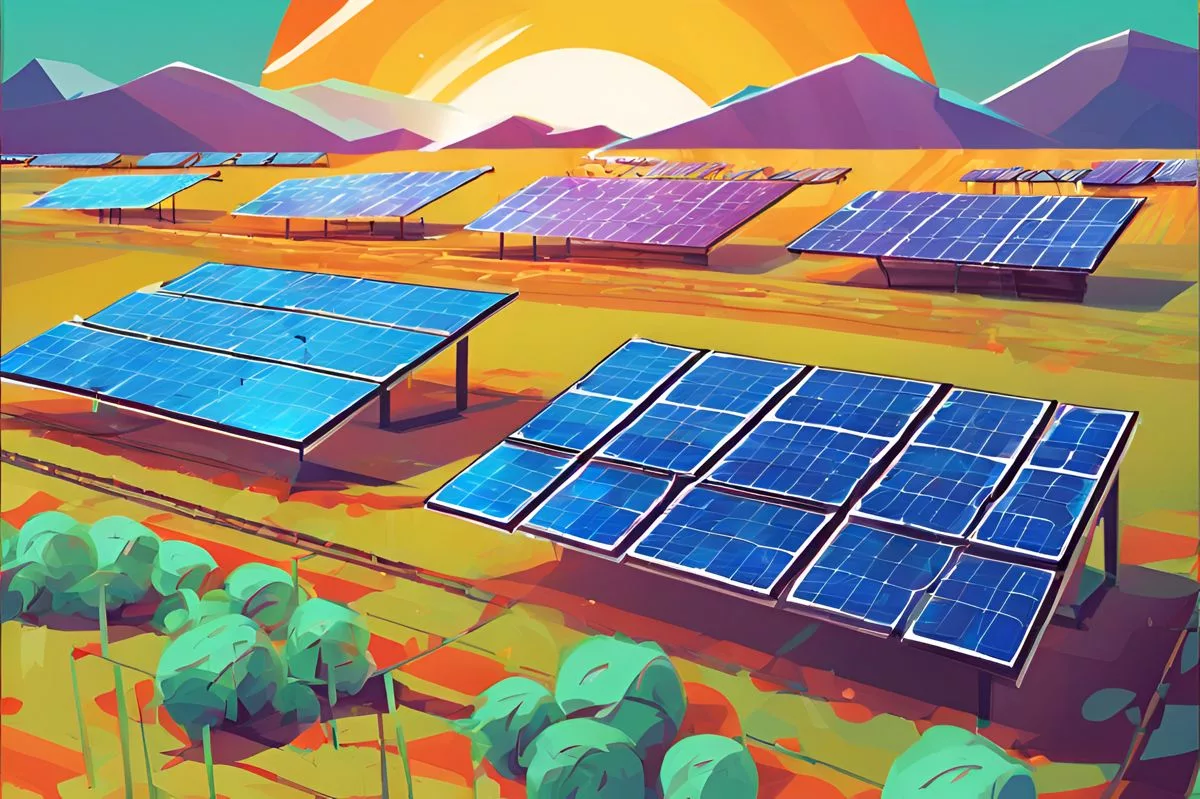The Western Cape province in South Africa is leading a pioneering energy revolution to eliminate load shedding, investing R7 billion over the next three years. This commitment includes a significant contribution from the City of Cape Town and other municipalities, as well as various solar and wind projects. The province is encouraging private households and businesses to install embedded generation, and their progress towards energy independence could serve as a model for others to emulate. Despite challenges, their resilience, innovation and collaboration foster hope for a self-sufficient, energy-resilient future.
How is South Africa’s Western Cape province addressing energy deficiencies?
The Western Cape province is investing R7 billion over three years to become the first province in South Africa to eliminate load shedding. This commitment includes a R1 billion contribution from the province, R3.9 billion from the City of Cape Town, and R1.9 billion from other municipalities. The province is also embarking on various solar and wind projects and encouraging private households and businesses to install embedded generation.
In the contemporary epoch marked by an intense global contest for energy resources, a pioneering group from South Africa’s Western Cape province has taken a distinct route. Unfazed by the debilitating impact of load shedding on the region’s fiscal health, these leaders have initiated a mission to free their province from the constraints of energy deficiencies. The province’s Premier, Alan Winde, revealed the daunting reality of load shedding’s influence on the region’s financial development during the State of the Province Address in the Western Cape.
The losses due to loadshedding, as he divulged, span between R49 billion and R61 billion in actual GDP since the initiation of this energy-saving step. The predicted loss for the year 2022 alone is expected to be a whopping R8.2 billion, with stage 4 load shedding draining R43 million every day.
A Beacon of Hope Amidst Energy Crisis
However, amidst this bleak scenario, hope sprouts. Premier Winde confirmed that the province is steadfastly progressing towards becoming the first to eliminate load shedding in South Africa. A substantial investment of R7 billion is lined up over the forthcoming three years to fortify the region’s energy durability. This commitment comprises R1 billion from the province, a hefty contribution of R3.9 billion from the City of Cape Town, and R1.9 billion pledged by other municipalities to assist households and private sector entities in fulfilling their energy needs.
One of the significant collaborations between the Hessequa Municipality and the Western Cape Government is the R210 million solar PV project in Riversdale. The project, spanning the next three years, is set to become a sustainable solution to counter the need for load shedding. The province’s current governing party, the Democratic Alliance, anticipates that this initiative will generate 15 million kilowatt-hours annually. Riversdale, which houses 22,000 inhabitants, is on the verge of becoming the first town in the province to eliminate load shedding.
Stepping Towards a Resilient Energy Future
Premier Winde also highlighted the impressive rise in embedded generation installations across the other twenty-five municipalities. He further indicated several wind and solar projects initiated by private households and businesses. These include three 75MW solar farms in the Touws River area and a comprehensive embedded solar project by Atlantis Foundries and Energy Partners, consisting of 20,000 ground-mounted solar panels.
Another noteworthy initiative is a solar project by Prescient Investment Management and H1 Holdings, which once operational next year, could potentially electrify up to 100,000 households. These collective endeavors present an optimistic outlook for the future of energy durability in the Western Cape.
Energy Independence: A New Era
While Eskom grapples with load shedding and underperforming power units at its power stations, the picture is dramatically different in several towns, municipalities, and cities. They’ve seized control of their power requirements. Johannesburg, Cape Town, and Tshwane have invested billions of rands in self-generation and alternative energy sources.
However, it’s not merely the metropolises making the headlines. Smaller towns like Clarens in the Free State are also making significant contributions. Clarens has now earned the reputation of the nation’s first ‘smart town’, managing its load and implementing load curtailment at a community level via a custom-designed app. Other towns like Frankfort have also attempted to fully eradicate load shedding through solar initiatives but encountered regulatory roadblocks.
The journey towards energy independence is an arduous one, strewn with challenges. Nevertheless, the leaders of the Western Cape are demonstrating the possibilities that resilience, innovation, and collaboration can yield. The province’s progress in becoming South Africa’s first load-shedding-free province could serve as a model for others to emulate. While the future of energy might be uncertain, the determination and vision of these leaders remain vibrant, fostering hope for a self-sufficient, energy-resilient future for the Western Cape.
1. What is the Western Cape province’s commitment towards eliminating load shedding?
The Western Cape province is investing R7 billion over three years to become the first province in South Africa to eliminate load shedding. This commitment includes a R1 billion contribution from the province, R3.9 billion from the City of Cape Town, and R1.9 billion from other municipalities.
2. What are some of the solar and wind projects being undertaken by the Western Cape province?
The Western Cape province is embarking on various solar and wind projects, including three 75MW solar farms in the Touws River area and a comprehensive embedded solar project by Atlantis Foundries and Energy Partners, consisting of 20,000 ground-mounted solar panels.
3. What is embedded generation and how is it being encouraged by the Western Cape province?
Embedded generation refers to small-scale power generation facilities that are connected to the local distribution network. The Western Cape province is encouraging private households and businesses to install embedded generation to fulfill their energy needs and contribute towards energy independence.
4. What is the significance of the Hessequa Municipality and the Western Cape Government’s solar PV project in Riversdale?
The R210 million solar PV project in Riversdale is a significant collaboration between the Hessequa Municipality and the Western Cape Government. The project is set to become a sustainable solution to counter the need for load shedding and is anticipated to generate 15 million kilowatt-hours annually.
5. How are smaller towns in South Africa contributing towards energy independence?
Smaller towns in South Africa, such as Clarens in the Free State, are also making significant contributions towards energy independence. Clarens has developed a custom-designed app to manage load and implement load curtailment at a community level, while other towns like Frankfort have attempted to fully eradicate load shedding through solar initiatives.
6. What is the significance of the Western Cape province’s progress towards energy independence?
The Western Cape province’s progress towards becoming South Africa’s first load-shedding-free province could serve as a model for others to emulate. The determination and vision of the province’s leaders demonstrate the possibilities that resilience, innovation, and collaboration can yield towards a self-sufficient, energy-resilient future.










